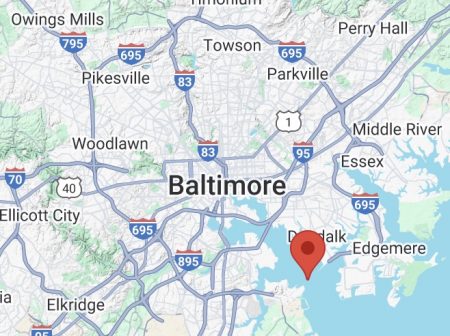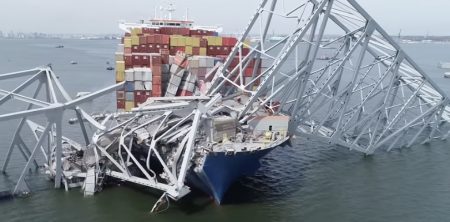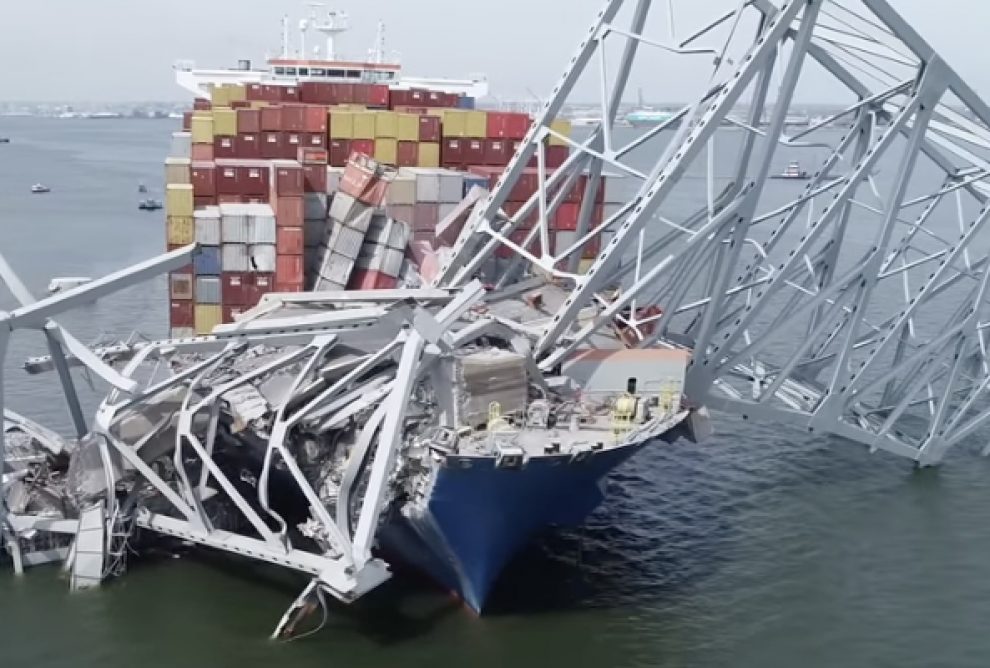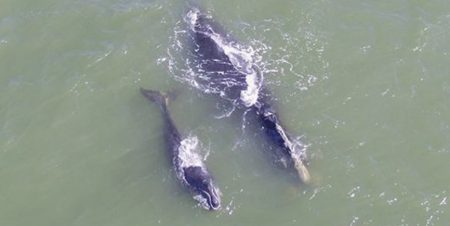By David Pendered
Dec. 16 – After 21 months of legal wrangling, the lawsuit over a ship that knocked down a Baltimore bridge still has parties jockeying for position as federal authorities have blamed a loose wire for the ship’s motor failure that led to the collision with the bridge.
One bit of news in the most recent case filing about the Dali cargo ship is that Phase 1 of the liability trial in the case remains set to begin June 1, 2026 in U.S. District Court in Maryland. That target date was cited in an order by which a judge denied a request filed by a food supplier almost a year after a court-imposed deadline for such claims.

The request was submitted by a supplier of Halal food that said it had tried to find relief for about $370,363 in lost cargo “without incurring undue expense.” The company, United Source One, Inc., had sought to recover damages from the ship’s owner after its insurance carrier, Tokio Marine Insurance Co., had denied coverage on the material lost in the mishap, according to a court paper that did not address Tokio Marine’s reason for denial of coverage.
This lawsuit was filed by Dali’s owner, Grace Ocean Private Limited, in its attempt to seek exoneration from, or limited liability for, the damage caused by the Dali striking the Francis Scott Key Bridge, sending six men to their death. The incident happened March 26, 2024 and the National Transportation Safety Board ruled in November a loose wire caused the malfunction that resulted in the Dali losing steerage and crashing into the bridge.
The estimated 34,000 vehicles that used the bridge each day have had to find alternate routes across the lower Patapsco River and outer Baltimore Harbor, according to the U.S. Transportation Department. The estimated replacement cost has swelled from less than $2 billion to up to $5.2 billion. The opening date has been pushed back by two years and the Key Bridge now is to open in 2030.












0